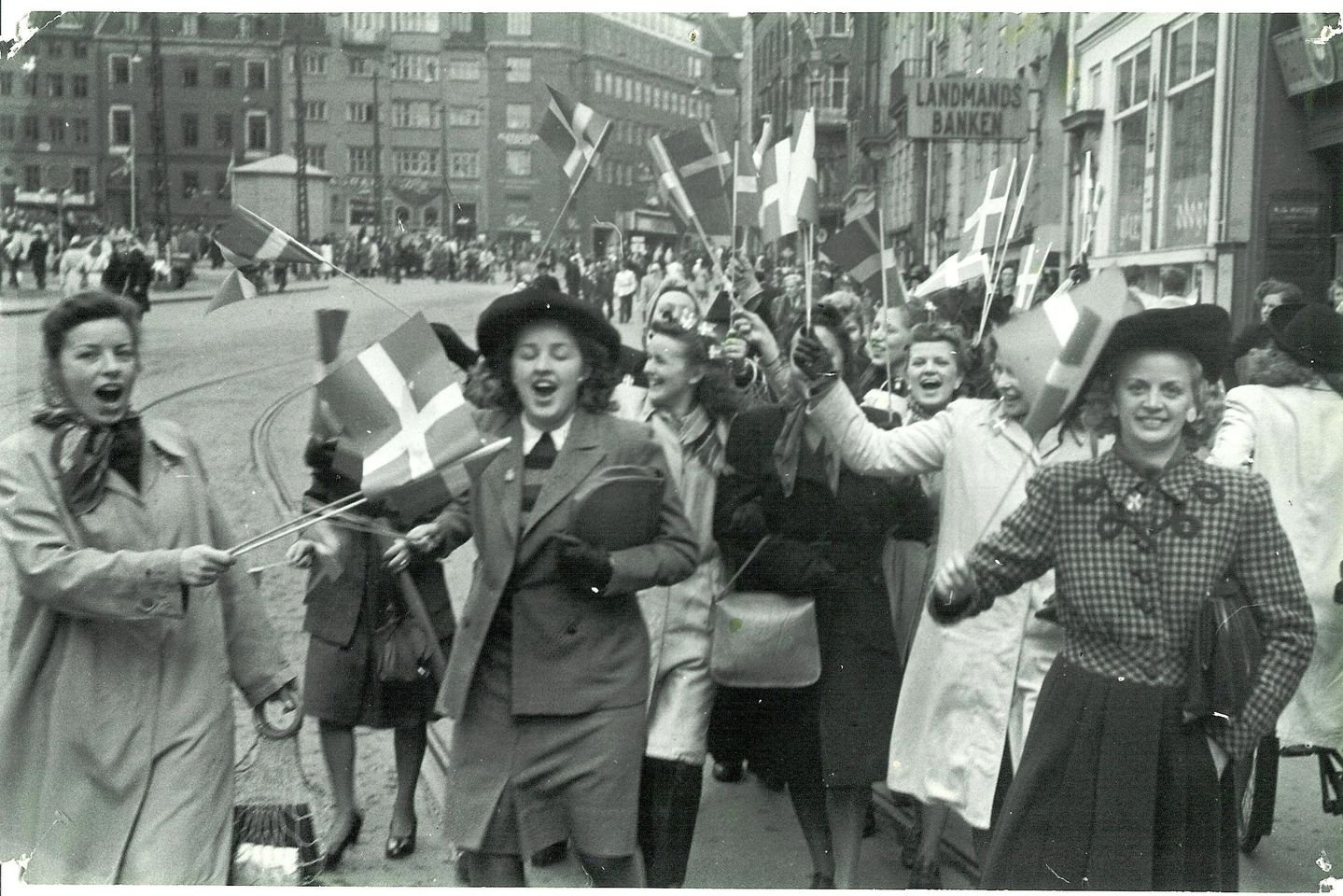De Små Løgne. De Store Løgne. (The Small Lies. The Big Lies.)
May 5, 1945: Copenhagen residents take to the streets while celebrating the liberation of Denmark
(National Museum of Denmark)
When the occupation ended on May 5, 1945, Danes celebrated by hurting, humiliating and executing alleged Nazi collaborators. They also talked endlessly about the “difficult days” under Nazi rule. And it was expected that Danes would have suffered and been exploited as the Belgians, Norwegians and the Dutch were.
But unlike European neighbors, Denmark surrendered within hours of being attacked by the Germans—which doesn’t seem like the most courageous of decisions but probably a smart one because the Danish military did not stand a chance against the German machine.
The Danish king and government decided that the best way of maintaining a sovereign Denmark was to cooperate with the Germans. We were so good at it that the Germans wanted to use the Danish-German cooperative relationship as a model for a future European community under Hitler’s domination. So, this claim that all Danes were busy fighting against the Germans is not entirely true. Danish economy and industry thrived during the occupation. There are several examples that validate this[1]:
· The number of private firms with five or more employees increased by 20% from 1940 to 1945
· The average union worker’s wages had increased by ~50 percent over 1939 levels
· Some laborers were being paid two to three times the official rate for their work on German construction projects
UDDRAG AF MANUSKRIPT NAZISYMPATISØRER: DANMARK’S BESKIDTE HEMMELIGHEDER. Forfatter: Sanne Melgaard. (Excerpt from the manuscript, Nazi Collaborators: Denmark’s Dirty Secrets by Sanne Melgaard)
[1] Giltner, P. (2001). The Success of Collaboration: Denmark's Self-Assessment of Its Economic Position after Five Years of Nazi Occupation. Journal of Contemporary History, 36(3), 485-506. Retrieved July 14, 2021, from http://www.jstor.org/stable/261008
Please note that this is an excerpt based on fact from a fictional novel of non-fiction, written by a fictional character who was murdered in A DEATH IN DENMARK. Enjoy!
